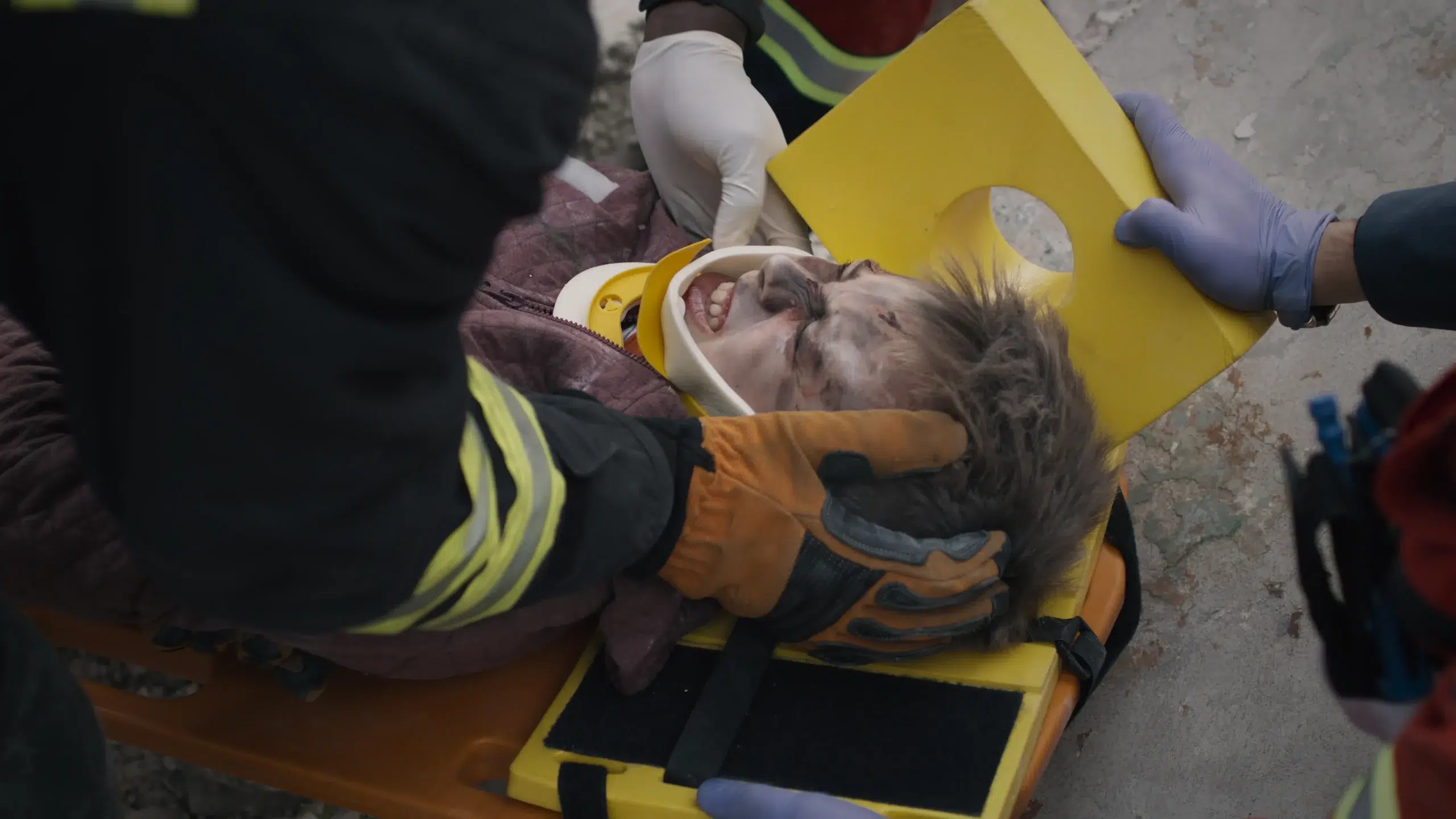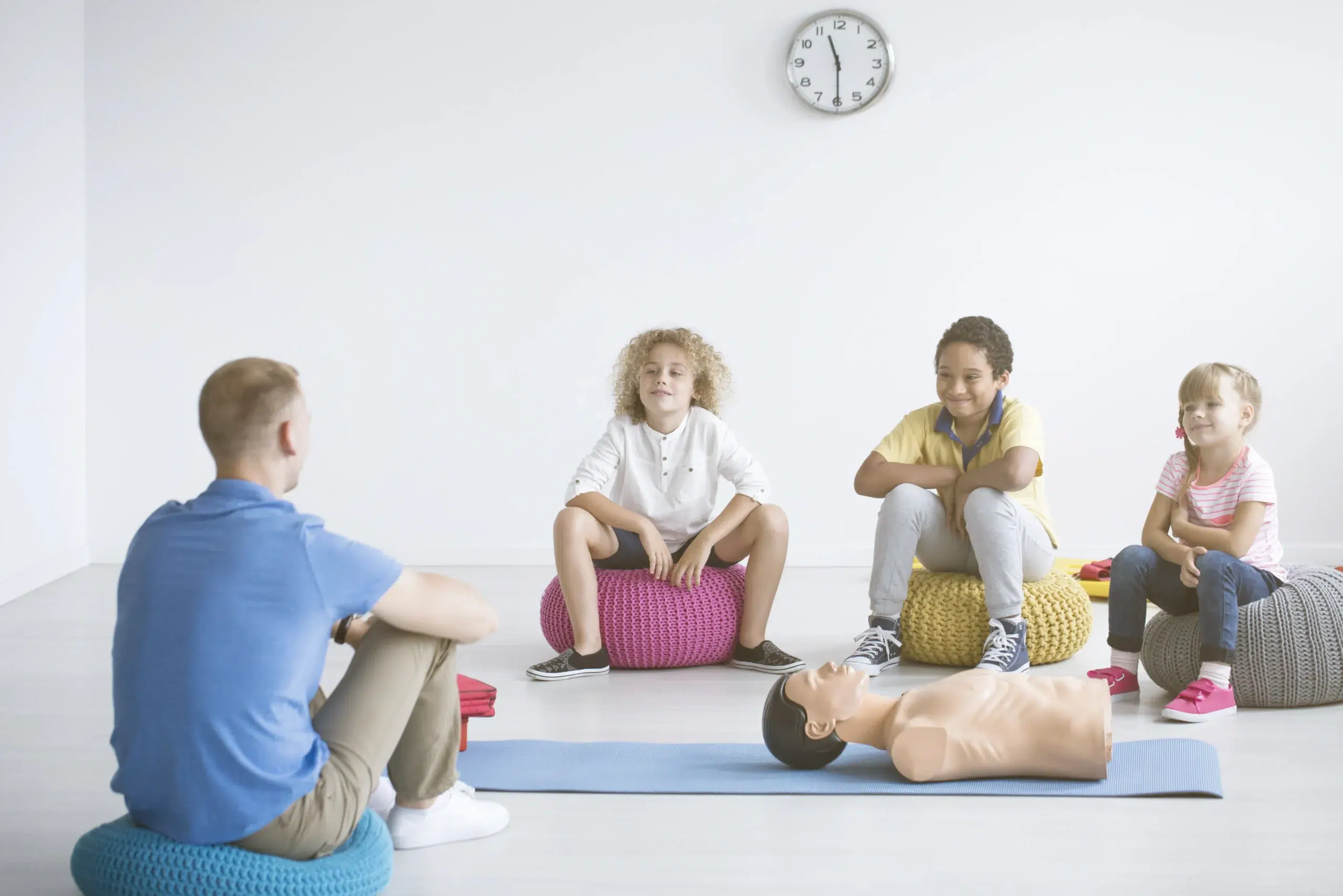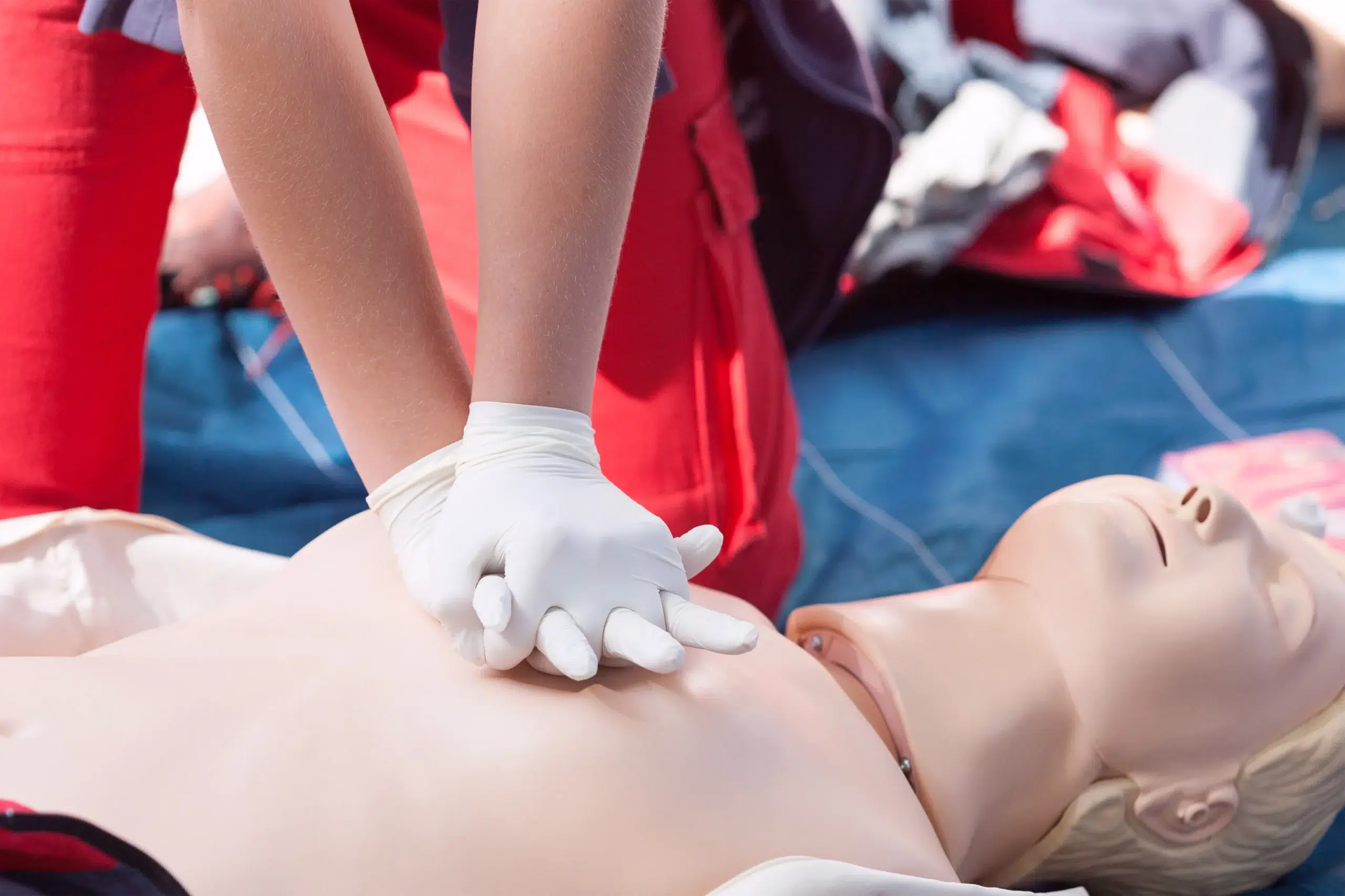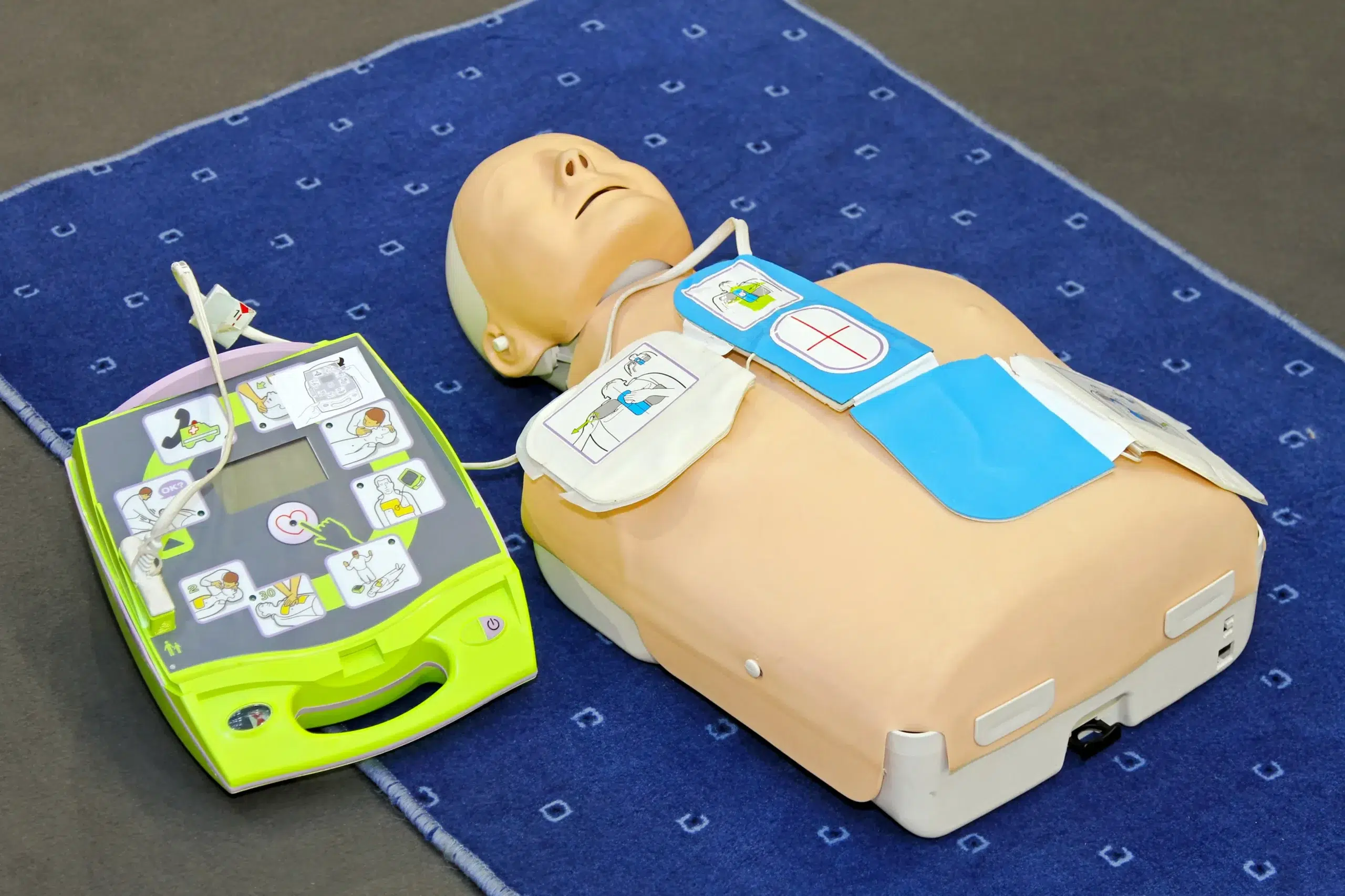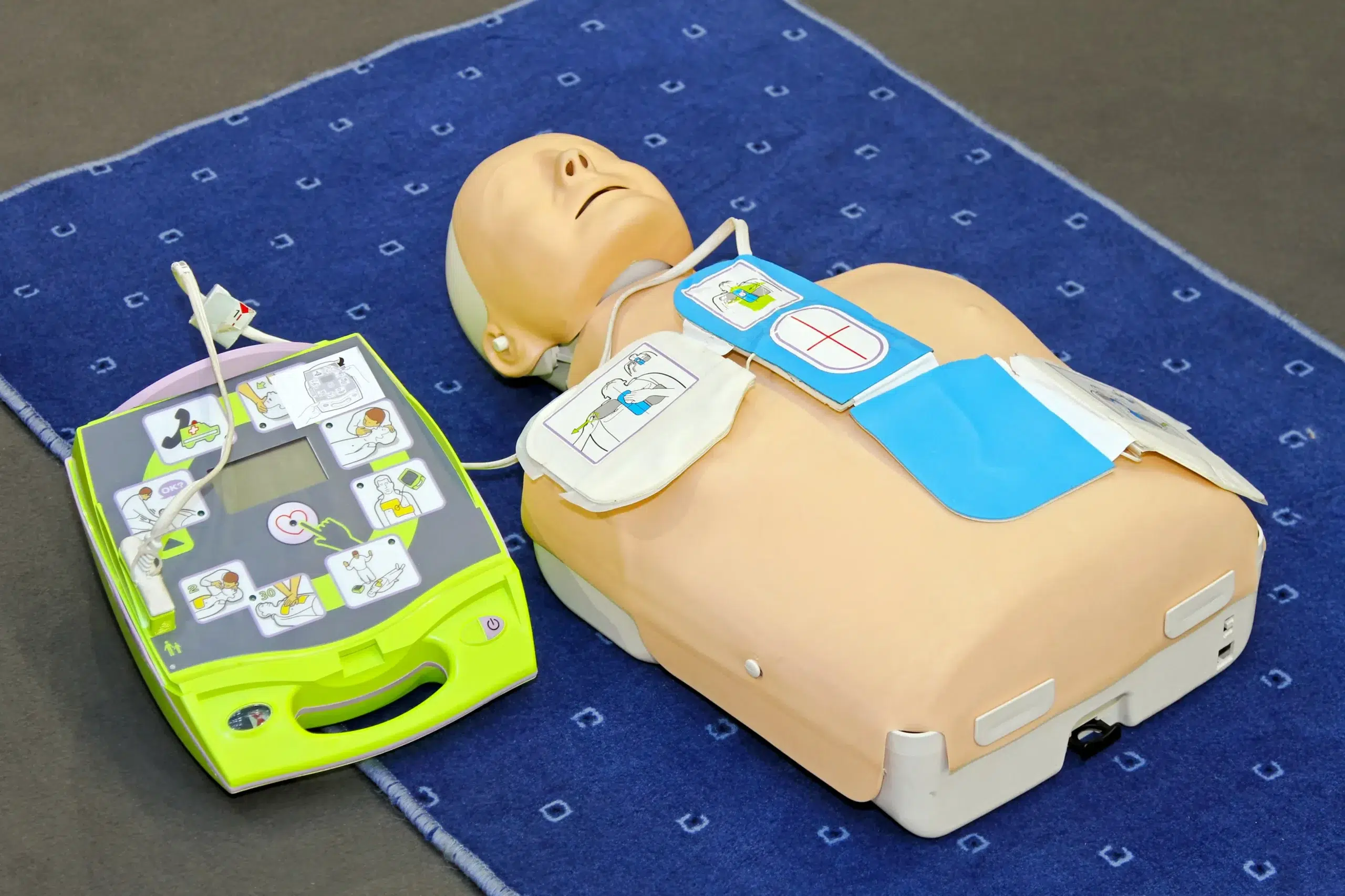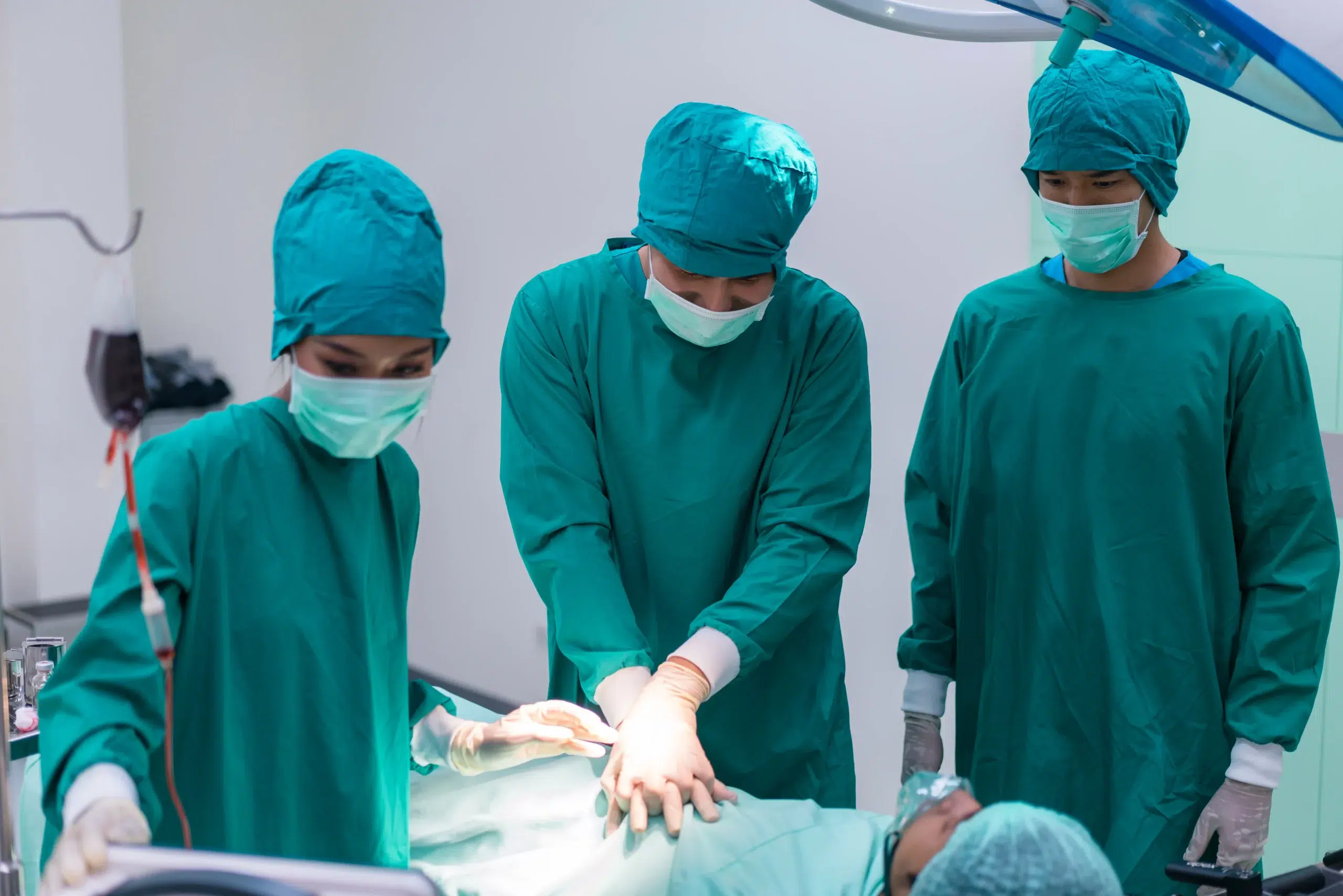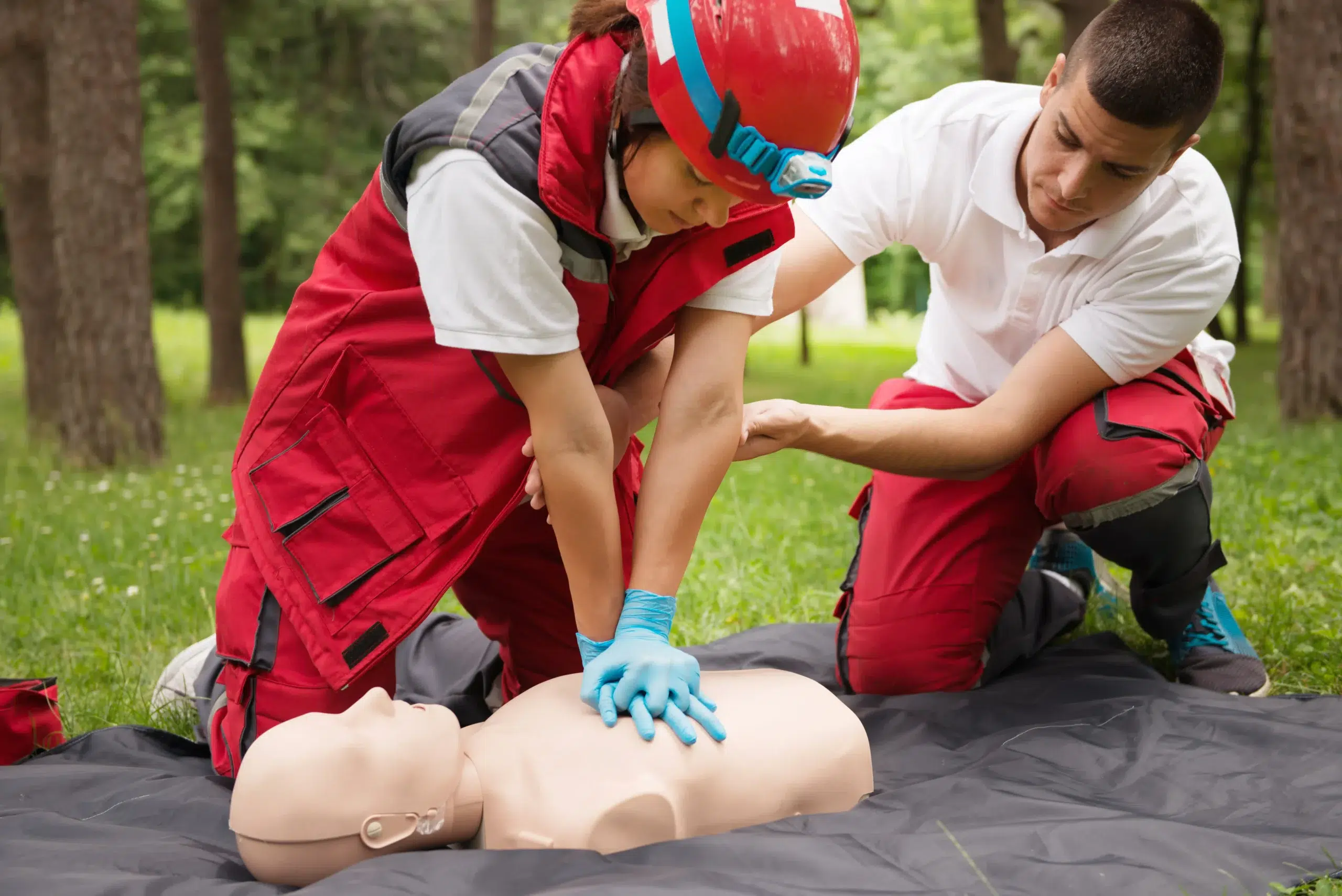Emergencies happen, and when they do, being equipped with the right first-aid skills can be life-saving. This comprehensive guide explores the world of first-aid training in Oakland, offering a practical roadmap for anyone seeking to become more prepared and confident in emergency situations. We’ll delve into the different types of first-aid courses available, from basic wound care to advanced life support techniques. We’ll also examine leading first-aid training providers in Oakland, discuss associated costs, and offer valuable tips for saving money. Whether you’re looking to enhance your personal safety, contribute to a safer workplace, or simply become a more valuable member of your community, this guide will help you find the perfect first-aid training in Oakland.
Key Takeaways
- Choose the right course: Whether you need basic first aid or advanced certification, Oakland has various options, including CPR, BLS, ACLS, and PALS. Consider your personal and professional goals when selecting a program.
- Make training affordable: First aid training is a valuable skill, and resources are available to make it accessible to everyone. Explore group discounts, early registration deals, and compare pricing between providers like Oakland CPR Courses and the American Red Cross.
- Maintain your skills: Keep your first aid knowledge sharp by renewing your certification and pursuing continuing education opportunities. Regularly refreshing your skills ensures you’re always prepared to help in an emergency.
What is First Aid Training in Oakland?
First aid training in Oakland gives you practical skills to handle medical emergencies, from minor injuries to serious situations. These courses teach you to assess injuries, control bleeding, manage shock, and provide basic life support until professional help arrives. Organizations like the American Red Cross offer comprehensive first aid and CPR training throughout Oakland, designed for individuals, workplace responders, and community organizations. Local providers like Bay Area CPR also offer various courses, highlighting the role of first aid training in building a safer community. First aid training creates a more prepared and resilient Oakland by empowering people to act confidently in emergencies.
First Aid Class Types
Knowing which first aid course meets your needs can feel overwhelming with so many options. This section breaks down the common types of first aid training in Oakland.
CPR and BLS
CPR and Basic Life Support (BLS) classes are crucial for healthcare professionals and recommended for everyone. These courses teach how to respond to life-threatening emergencies like cardiac arrest and choking. You’ll learn chest compressions, rescue breaths, and how to use an AED. Bay Area CPR offers blended learning with online coursework and a shorter in-person skills session for CPR Certification in Oakland. For a comprehensive in-person experience, CPR Certification Plus offers an AHA BLS CPR Certification class focused on high-quality CPR and AED use. Oakland CPR Courses also provides American Heart Association BLS training.
Standard First Aid
Standard first aid courses cover various injuries and illnesses, from minor cuts and burns to sprains and fractures. You’ll learn essential skills like wound care, applying bandages and splints, and managing medical emergencies until help arrives. The Red Cross offers first aid training designed to be concise and fit busy schedules. They also provide CPR classes in Oakland, often combined with first aid training for a more well-rounded skill set.
Advanced and Specialized Programs
For healthcare providers and those seeking more specialized training, advanced courses like Advanced Cardiovascular Life Support (ACLS) and Pediatric Advanced Life Support (PALS) are available. These programs build upon basic life support skills, focusing on team dynamics and advanced life-saving techniques. Safety Training Seminars offers a range of AHA courses, including ACLS and PALS. Oakland CPR Courses also offers ACLS and PALS certification through the American Heart Association. Healthcare professionals can also maintain their certifications through the American Heart Association’s Resuscitation Quality Improvement (RQI) program, offered by various providers like CPR Classes Oakland, which provides BLS, ACLS, PALS, CPR, and first-aid classes.
Top Oakland First Aid Training Providers
Finding the right first aid training can feel overwhelming, so we’ve compiled a list of reputable providers in Oakland. Whether you’re a healthcare provider, a childcare provider, or just want to be prepared, this list will help you find the perfect fit.
Oakland CPR Courses
Oakland CPR Courses offers various courses, including CPR, BLS, ACLS, PALS, and First Aid. They prioritize high-quality instruction with excellent customer service and competitive pricing. Serving Alameda, Oakland, and Berkeley, they offer convenient daily classes through Safety Training Seminars, a certified training center. Students receive official certification cards upon completion. Learn more about their CPR training.
American Red Cross
The American Red Cross is a well-known provider of first aid and CPR training. Their Oakland location offers various courses, including options for individuals, first responders, and organizations. They also have programs for schools. The Red Cross emphasizes convenient scheduling, with most courses taking only a few hours. Explore their first aid classes.
Health & Safety Institute (HSI)
Safety Training Seminars, affiliated with the Health & Safety Institute (HSI), provides American Heart Association-certified courses, including BLS, ACLS, PALS, and CPR in Oakland. This makes them a solid option for healthcare providers seeking certification from a nationally recognized organization. Find an HSI course.
Local Community Colleges
Consider checking with local community colleges, such as Laney College and Merritt College, for first aid and CPR training. These institutions often offer affordable courses open to the public. Community colleges may also have specialized programs geared towards specific industries or healthcare professions. For more information on CPR certification in Oakland, including renewals, see this guide.
First Aid Training Costs
Understanding the cost of first aid training is an important step in choosing the right course. Several factors influence pricing, so let’s break them down.
Course Type Pricing
The type of first aid course you choose directly impacts the price. A basic CPR course will typically be less expensive than a combined First Aid and CPR class. For example, CPR Certification Oakland offers an AHA-certified CPR class for $64.95, while their First Aid + CPR class costs $84.95. More advanced courses, such as ACLS (Advanced Cardiovascular Life Support) or PALS (Pediatric Advanced Life Support), will have higher price points due to the specialized nature of the training. Oakland CPR Courses offers ACLS and PALS training for those seeking these certifications.
Additional Fees & Materials
Keep in mind that the initial course fee may not cover everything. Some training providers charge extra for certification cards, manuals, or online resources. Ask about these potential add-on costs upfront so you can factor them into your budget. Also, consider the cost of renewal courses, which are necessary to maintain your certification.
Provider Cost Comparison
It’s always a good idea to compare pricing between different training providers. While cost is a factor, don’t let it be the only one. Consider the provider’s reputation, the quality of instruction, and the type of certification offered. Safety Training Seminars in Oakland, for example, is known for offering competitive prices while maintaining a focus on high-quality instruction for AHA courses. Remember, investing in a reputable provider ensures you receive comprehensive training and a valid certification, like the AHA BLS CPR card, which is valid for two years. Oakland CPR Courses offers a low-price guarantee and group discounts to help make training more affordable. Be sure to inquire about similar cost-saving options when comparing providers.
Save Money on First Aid Training
First aid training is a valuable investment, but it doesn’t have to break the bank. Several strategies can help you find affordable, high-quality training in Oakland.
Group Discounts & Rates
If you’re training with friends, colleagues, or a community group, consider leveraging group discounts. Many providers, including Safety Training Seminars, offer reduced rates for group bookings. Contact Oakland CPR Courses to explore group discounts for courses like BLS, ACLS, PALS, CPR, and First Aid. This can be a smart way to lower the per-person cost while learning alongside others.
Early Registration Benefits
While not always advertised, some training centers offer discounts for early registration. Planning ahead and signing up in advance might yield savings. It’s always worth inquiring about early bird discounts or upcoming promotions. This proactive approach could reveal budget-friendly options.
Current Promotions
Keep an eye out for limited-time offers and promotions. Training providers often run special deals. For example, the Red Cross sometimes offers a training program designed for schools. Checking providers’ websites or subscribing to their newsletters can alert you to potential cost savings. Comparing pricing is also helpful. CPR Certification Oakland offers competitive rates for CPR and First Aid training. Don’t forget to review Oakland CPR Courses’ low price guarantee to ensure you’re getting a competitive rate.
Why First Aid Skills Matter
Learning first aid isn’t just about checking a box; it’s about equipping yourself with the skills to handle emergencies effectively. Whether at home, in the workplace, or out in the community, first aid knowledge empowers you to make a real difference.
Prepare for Personal Safety
Knowing first aid allows you to respond confidently to unexpected medical situations at home or anywhere you go. From minor cuts and burns to more serious incidents, your training can help stabilize a situation until professional help arrives. Being prepared can truly save lives, as many deaths and injuries are preventable with timely intervention. This article highlights how first-aid training saves lives. Having these skills not only protects you but also allows you to assist loved ones, friends, and even strangers in need.
Enhance Workplace Safety
First aid training is crucial for creating a safer work environment. Accidents can happen anywhere, and having trained personnel on-site can significantly reduce the severity of injuries. The Red Cross offers various training programs for first aid and CPR tailored to different workplaces, including specialized training for schools and organizations. A prepared workplace fosters a culture of safety and demonstrates a commitment to employee well-being.
Community Health Impact
First aid training extends beyond personal and workplace safety; it strengthens the entire community. By learning these skills, you become a valuable asset, able to assist during community events, emergencies, or even everyday incidents. CPR and first aid classes contribute to a more resilient and responsive community, creating a more caring and prepared environment for everyone. Bay Area CPR discusses the community impact of these important skills.
Choose the Right First Aid Course
Finding the right first aid course is crucial for effective emergency preparedness. It’s not a one-size-fits-all situation; the best course for you depends on your individual circumstances and goals. Here’s a breakdown of how to find the perfect fit:
Assess Your Needs
Before you start searching for courses, take a moment to consider your specific needs. Are you a parent wanting to learn basic first aid for your family? Are you a healthcare professional needing to maintain your BLS certification? Or are you a teacher looking for a comprehensive program covering common classroom emergencies? Organizations like the Red Cross offer various programs tailored for different audiences, including specialized training for schools, covering both staff and students. Understanding your specific requirements will help you narrow your options and choose a course that provides the most relevant skills and knowledge.
Compare Course Curricula
Once you have a general idea of the type of course you need, compare curricula. Different courses cover different topics, so ensure the course you choose aligns with your goals. For example, some courses may focus solely on basic first aid skills, while others might include CPR and AED training. Look for courses covering essential topics like recognizing emergencies, basic wound care, and managing common injuries. Some providers offer blended learning options, allowing you to complete some coursework online before attending a shorter in-person skills session. This flexibility can be a great option for busy schedules. Consider contacting Oakland CPR Courses to discuss curriculum options.
Evaluate Certification Requirements
Finally, consider the certification a course provides. If you need certification for your job, ensure the course meets those requirements. American Heart Association certifications are widely recognized, covering everything from basic CPR to advanced life support (ACLS and PALS). Check with your employer or licensing board to confirm the specific certifications you need. Choosing a reputable provider ensures your training meets industry standards, equipping you with the necessary skills and credentials. Oakland CPR Courses offers a range of certification options to meet various professional needs.
What to Expect in a First Aid Class
Knowing what awaits you can make you feel more comfortable heading into your first aid training. Here’s a look at the typical class structure:
Course Structure & Duration
First aid courses are designed to be efficient and manageable, often wrapping up within a single day. For example, Red Cross CPR and first aid classes in Oakland often only take a few hours. Expect a blend of discussions, demonstrations, and hands-on practice.
Hands-on Practice
The best first aid training emphasizes hands-on learning. You’ll practice essential skills, like CPR and using an AED, in a safe environment. CPR Certification Plus stresses this practical training in their BLS CPR classes. This hands-on experience builds your confidence and prepares you to act quickly in a real emergency.
Assessment & Certification
Most first aid courses include a final assessment to confirm you’ve understood the material. After successfully completing the course, you’ll receive a certification card, like the AHA BLS CPR card, usually valid for two years. Providers like Bay Area CPR offer renewal courses to keep your certification and skills up-to-date.
Maintain Your First Aid Certification
Keeping your first aid skills sharp is crucial for responding effectively in emergencies. This means staying up-to-date with the latest procedures and recommendations. Regularly refreshing your training ensures you can provide the best possible care when needed.
Renewal Requirements
First Aid certifications, like the American Heart Association BLS CPR card, generally expire after two years. This timeframe helps ensure providers maintain current knowledge and skills. Check your certification card for the exact expiration date and plan your renewal course accordingly. Don’t let your certification lapse—stay prepared and confident in your abilities.
Continuing Education
Even if your certification isn’t due for renewal, ongoing education is valuable. Many providers offer refresher courses covering core first aid principles and the latest guidelines. These courses reinforce existing skills and introduce new techniques, keeping you at the forefront of first aid practices. For healthcare professionals, the American Heart Association’s Resuscitation Quality Improvement (RQI) program provides a flexible and efficient way to maintain BLS, ACLS, and PALS certifications. The RQI program emphasizes continuous learning and skill improvement, ensuring healthcare providers deliver the highest quality of care. Consider incorporating continuing education into your professional development to maintain peak performance in emergency situations.
Oakland First Aid Resources
Knowing where to find reliable first aid information and training is crucial. Oakland residents have access to several valuable resources dedicated to promoting health and safety. This section highlights key organizations and initiatives that contribute to a more prepared and resilient Oakland.
Local Emergency Response
Oakland benefits from the presence of established organizations like the American Red Cross and Safety Training Seminars. The Red Cross offers a range of first aid and CPR training programs catering to individuals, first responders, and organizations. They even have specialized programs designed for schools, ensuring that both staff and students are equipped to handle emergencies. Safety Training Seminars focuses on American Heart Association (AHA) courses, providing comprehensive training in CPR, BLS, ACLS, and PALS. These courses empower individuals with the skills to respond effectively in critical situations. Having these resources readily available contributes to a faster and more effective response during emergencies.
Community Health Initiatives
Beyond immediate emergency response, Oakland fosters a culture of proactive health and safety. Organizations like Bay Area CPR emphasize that first aid training is more than just an educational program; it’s a community-building endeavor. The Red Cross reinforces this message, highlighting how learning CPR, AED use, and first aid empowers individuals to make a real difference. By equipping residents with these essential skills, Oakland cultivates a network of prepared individuals ready to assist in times of need. This proactive approach strengthens individual preparedness and fosters a stronger sense of community responsibility.
Related Articles
- CPR, BLS, ACLS, PALS, & First-aid Courses in Oakland, CA
- CPR Training in Oakland: Your Complete Guide – Oakland CPR Classes
- CPR Training in Oakland: Find the Right Course for You – Oakland CPR Classes
- CPR & First-aid Classes in Oakland, CA – Oakland CPR Classes
- AHA PALS Classes in Oakland, CA – Oakland CPR Classes
Frequently Asked Questions
What’s the difference between CPR and First Aid? CPR focuses specifically on life-threatening situations like cardiac arrest and choking, teaching rescue breaths and chest compressions. First Aid covers a broader range of injuries and illnesses, from minor cuts to broken bones, providing essential skills to manage these situations until professional help arrives. Often, these two skill sets are taught together.
How do I choose the right First Aid course in Oakland? Think about why you want First Aid training. Are you a parent, a healthcare worker, or simply someone who wants to be prepared? Once you know your goals, look at what different courses cover. Some focus on basic skills, while others include CPR or are geared towards specific professions. Also, check if the course offers the right certification if you need it for work.
How much does First Aid training cost in Oakland? The cost varies depending on the course type and provider. Basic First Aid is usually less expensive than combined First Aid/CPR or advanced courses like ACLS and PALS. Look for providers offering group discounts, early registration deals, or other ways to save. Don’t forget to factor in the cost of certification cards or manuals.
What should I expect during a First Aid class? Expect a mix of instruction, demonstrations, and lots of hands-on practice. You’ll learn how to assess injuries, perform basic life support techniques, and manage various medical situations. Most courses take just a day to complete, and you’ll receive a certification card upon passing a final assessment.
How do I keep my First Aid certification current? Certifications typically expire after two years. Check your card for the specific renewal date and sign up for a refresher course before it lapses. Even if your certification isn’t expiring soon, consider taking update courses to stay current with the latest guidelines and techniques. This ensures you’re always prepared and confident in your skills.


